Indigenous Governance Database
Honoring Nations Case Studies
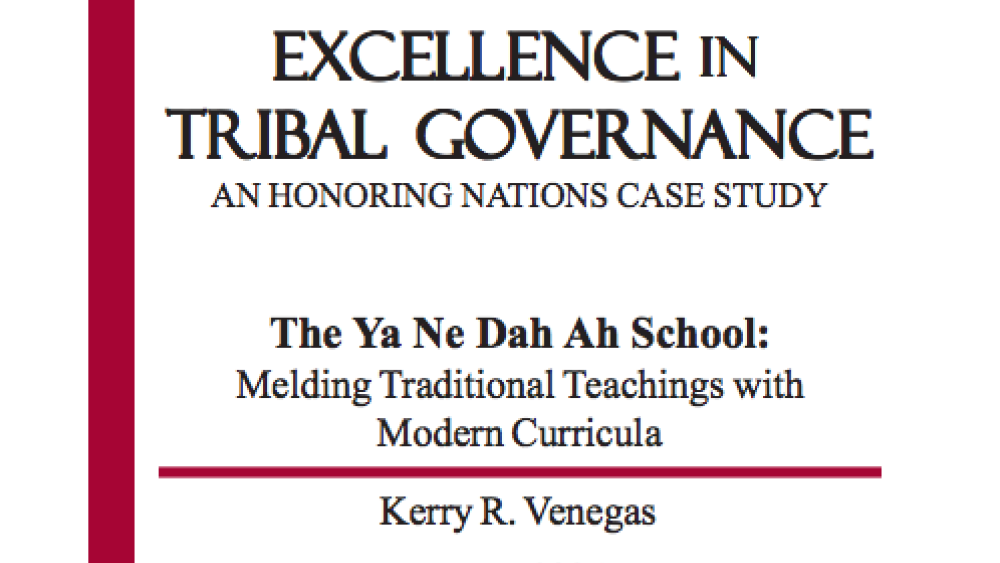
The Ya Ne Dah Ah School (Chickaloon): Melding Traditional Teachings with Modern Curricula
For many generations, education in American Indian/Alaskan Native (AI/AN) communities has been controlled by sources external to the communities and the people themselves. Large bureaucratic agencies, such as the Bureau of Indian Affairs (BIA) or public school systems overseen…
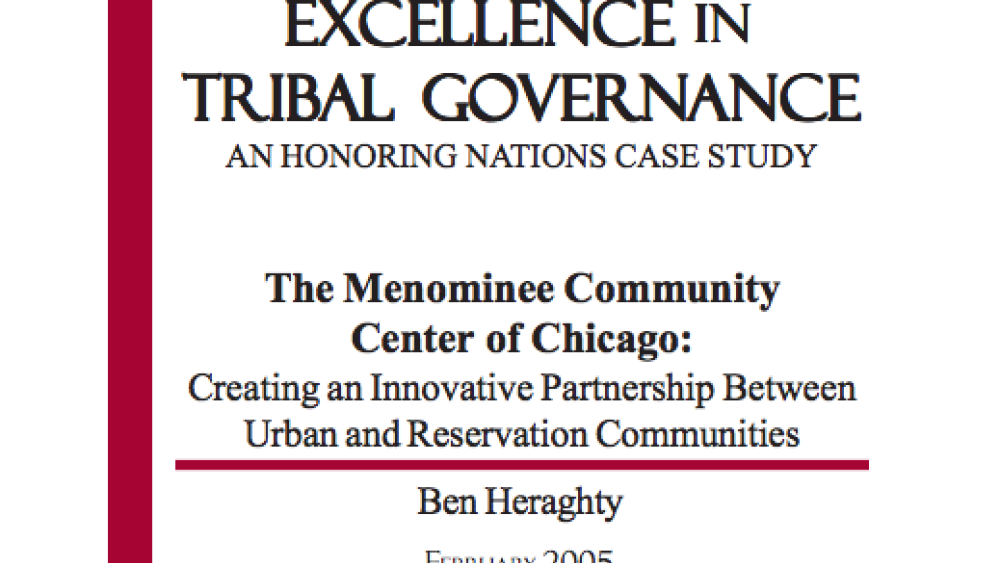
The Menominee Community Center of Chicago: Creating an Innovative Partnership Between Urban and Reservation Communities
Over half of the Menominee Indian Tribe of Wisconsin lives off-reservation. Regrettably, the ties between the Menominee’s reservation and urban populations, like those between the split populations of so many Indian nations, have been tenuous for decades. In 1994, a group…
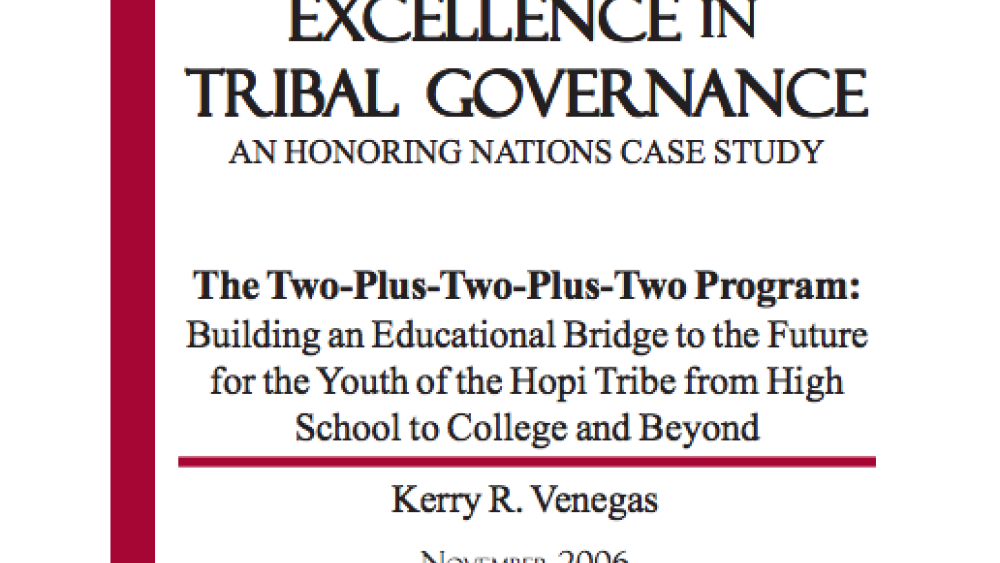
The Two-Plus-Two-Plus-Two Program: Building an Educational Bridge to the Future for the Youth of the Hopi Tribe from High School to College and Beyond
Over the last 30 years, Native nations across North America have been taking control of their educational systems in the belief that American Indian “self-determination and local control [are] means of cultural preservation and growth.” Disturbed by the low achievement scores…
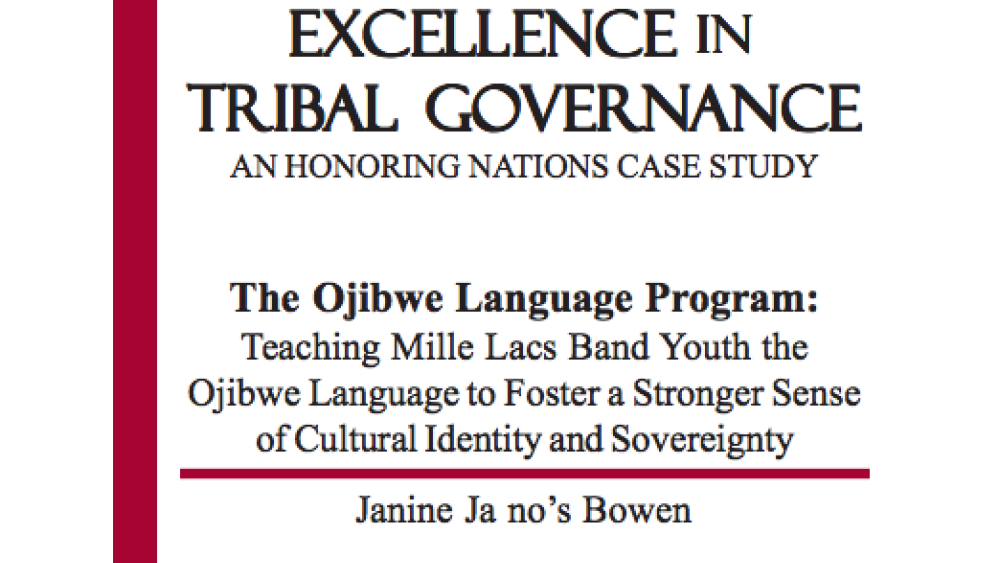
The Ojibwe Language Program: Teaching Mille Lacs Band Youth the Ojibwe Language to Foster a Stronger Sense of Cultural Identity and Sovereignty
As part of its effort to assimilate American Indians into mainstream society, the federal government launched an assault on Native languages. For example, in the 1890s the government built twenty-five off-reservation boarding schools to which many Indian children were forcibly…
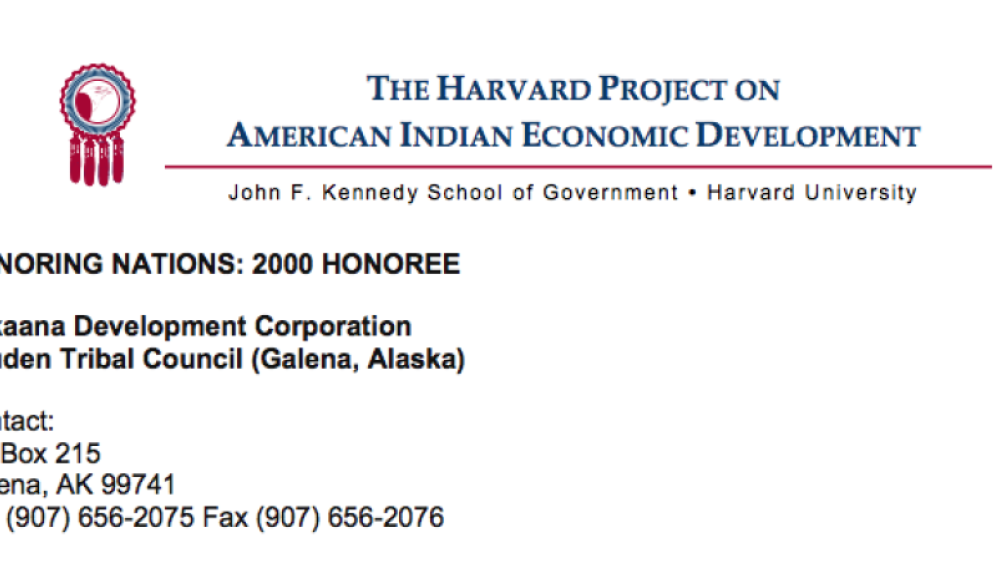
Yukaana Development Corporation (Louden Tribal Council)
The Louden Tribal Council created the Yukaana Development Corporation in 1998 to address the concerns of environmental degradation and environmental justice through training and employment. Under a contract with the US Air Force, the tribally owned Corporation cleans contamination caused by a local…
